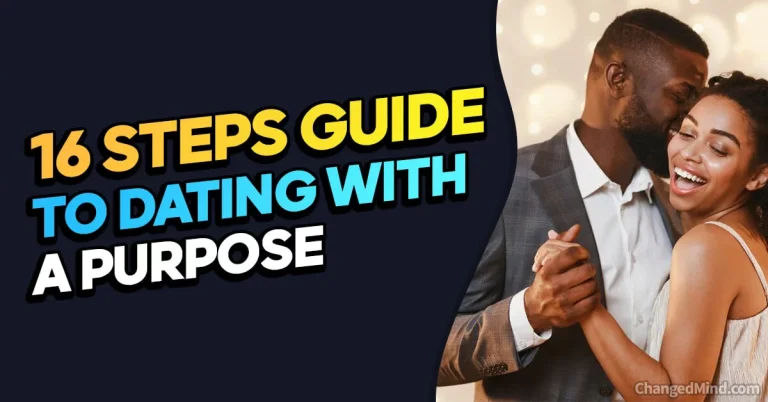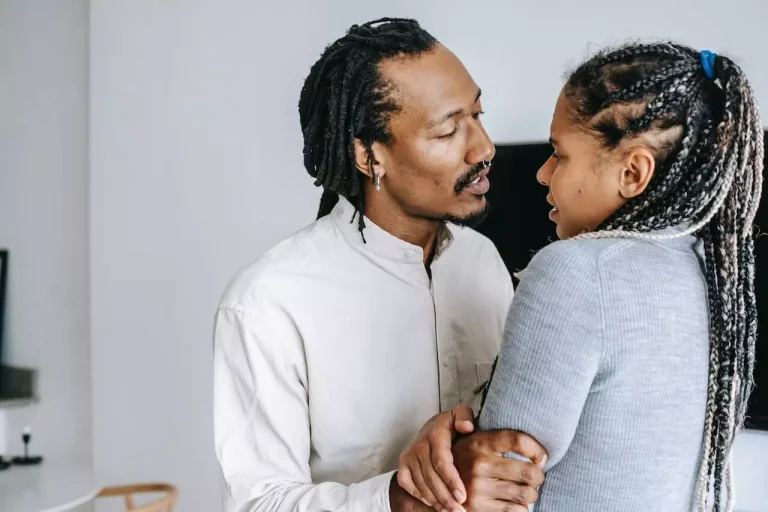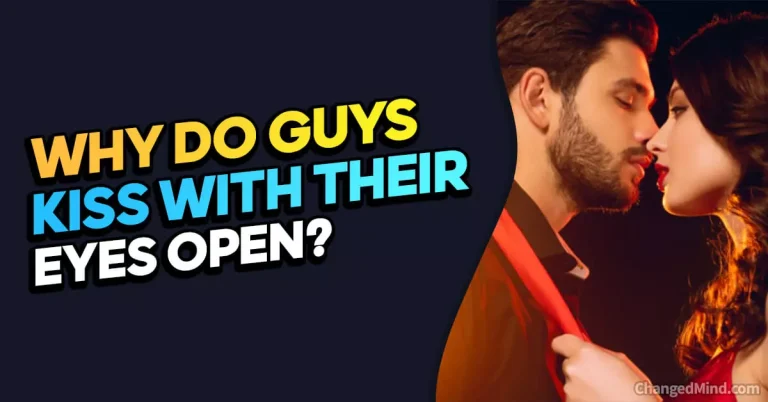Hey there, have you ever heard of “the Myth of the Friend Zone”? It’s one of those topics that’s been around forever, sparking debates, misunderstandings, and even a few cringe-worthy moments. But fear not, because we’re about to dive deep into this age-old myth and separate fact from fiction.
In this blog post, we’re here to debunk the Friend Zone myth, and by the time you’re done reading, you’ll have a whole new perspective on relationships. Trust me; it’s not as complicated as it seems.
We’ll explore how friendships and romantic feelings coexist, and why the Friend Zone isn’t necessarily a dreadful place to be. It’s all about understanding, communication, and embracing the beauty of genuine connections.
But we won’t stop there! We’ll provide you with some practical insights and real-life examples to help you navigate these sometimes tricky waters. Plus, we’ve got a few surprises in store to make this journey even more enlightening.
So, get ready to kick those misconceptions to the curb and gain a fresh outlook on relationships.
Here’s a sneak peek of what’s coming your way:
- The truth about the Friend Zone myth
- How to communicate your feelings effectively
- The value of authentic friendships
- Navigating the complexities of emotions
- And much more!
Let’s dive in, debunk the myth, and embark on this exciting journey together!
Understanding the Friend Zone Myth: What Is It Exactly?
So, you’ve heard the phrase “the Myth of the Friend Zone” thrown around in conversations about relationships, but what does it really mean? Let’s break it down and get to the heart of this often-misunderstood concept.
Unpacking the concept of the Friend Zone
The Friend Zone – it’s a term that’s been debated, discussed, and sometimes even dreaded in the world of dating and relationships. But what does it actually refer to? Well, at its core, the Friend Zone is a term used to describe a situation where one person has romantic feelings for someone who only sees them as a friend. In other words, it’s when one individual hopes for a romantic connection, but the other person only sees them as a buddy, pal, or companion.

Now, it’s crucial to understand that the Friend Zone isn’t some mystical zone where people are banished if they’re too nice or friendly. It’s simply a way to express the dynamics of unrequited romantic feelings within a friendship. It’s like wanting to dance to a different tune while your friend is grooving to a different beat.
Common misconceptions surrounding this myth
Misconception #1: The Friend Zone is a one-way street
Contrary to popular belief, the Friend Zone isn’t just a place where one person lands while the other is in control. It’s a two-way street. Both parties in the friendship have their feelings and perspectives, and it’s essential to respect those boundaries. A healthy friendship is built on mutual understanding and respect, not just on unfulfilled romantic desires.
Misconception #2: The Friend Zone is a trap
It’s easy to think of the Friend Zone as a trap, but it’s more like a crossroads. Sometimes, people enter the Friend Zone because they genuinely value the friendship and want to explore deeper connections over time. It’s not a scheme to keep someone at arm’s length; it’s often a result of differences in emotional readiness or compatibility.
Misconception #3: The Friend Zone is forever
Here’s a myth-buster for you: the Friend Zone isn’t a life sentence. People and feelings can change, evolve, and grow. Friendships can transition into romantic relationships, but it’s essential to remember that it shouldn’t be forced or rushed. Patience and open communication are key.

Why the Friend Zone deserves a closer look
Now that we’ve demystified some of the common misconceptions surrounding the Friend Zone, you might wonder why it’s worth exploring further. Well, the Friend Zone is a topic that impacts countless individuals navigating the complexities of relationships. It’s a concept that highlights the importance of communication, empathy, and understanding in our interactions with others.
In the upcoming sections of this blog post, we’ll delve deeper into the Friend Zone, debunking more myths and shedding light on how to navigate it with grace and respect. Whether you’ve found yourself in the Friend Zone or are trying to understand it from the outside, this journey will provide you with valuable insights and tools to navigate the often-challenging terrain of relationships. So, stick around as we embark on this enlightening adventure together!
Debunking the Friend Zone Myth: Separating Fact from Fiction
Welcome to the next chapter in our quest to unravel the mysteries of the Friend Zone. In this section, we’re going to challenge the stereotypes and assumptions that often come hand in hand with this myth.
Challenging the stereotypes associated with the Friend Zone
Stereotype #1: The Friend Zone is a cold, heartless place
One common misconception is that being in the Friend Zone means you’re stuck in a cold and emotionless void. This couldn’t be further from the truth. The Friend Zone is, in fact, a place where genuine friendships thrive. It’s a space filled with warmth, trust, and camaraderie. Sure, there may be unspoken feelings simmering beneath the surface, but that doesn’t negate the value of the friendship itself.

Stereotype #2: The Friend Zone is a gendered phenomenon
Another myth is that the Friend Zone primarily affects one gender more than the other. In reality, it’s a universal experience that knows no gender boundaries. People of all genders can find themselves on either side of the Friend Zone equation. It’s about human emotions and connections, not gender roles.
Stereotype #3: The Friend Zone is a dead-end road
Some might believe that once you’re in the Friend Zone, there’s no turning back, and all hope for romance is lost. But that’s not accurate. The Friend Zone isn’t a dead-end road; it’s more like a crossroads. It’s a place where you can choose to continue nurturing a valuable friendship or, if both parties are willing, explore the possibility of a romantic relationship. It’s a place of possibilities, not limitations.
Examining real-world examples that defy the myth
To truly debunk the Friend Zone myth, it’s essential to look at real-life examples where friendships have not only survived but thrived despite the presence of unreciprocated romantic feelings. Many people have experienced situations where they initially harbored romantic interest in a friend, only to discover that the strength of their friendship grew stronger over time.
Think about your own life or the lives of those around you. Haven’t you witnessed friendships that have weathered the storm of unrequited love and emerged even more robust on the other side? These stories of resilience and growth are living proof that the Friend Zone is not the insurmountable barrier it’s often made out to be.
How the Friend Zone can be a positive, misunderstood concept
In conclusion, it’s crucial to recognize that the Friend Zone, when viewed in the right light, can be a positive and misunderstood concept. It’s a space where friendships bloom, emotions run deep, and personal growth takes root. Instead of fearing or dismissing it, we should embrace the Friend Zone as a valuable aspect of our complex relationships.
In the following sections, we’ll delve deeper into the practical aspects of navigating the Friend Zone with grace, kindness, and respect. We’ll explore strategies to communicate effectively, manage expectations, and, most importantly, maintain the integrity of the friendships we cherish. So, stick around as we continue our journey to shed light on the Friend Zone and unveil its hidden treasures.

The Value of Authentic Friendships: Why Being a Friend Is Not a Bad Thing
In this section, we’re going to delve into the wonderful world of authentic friendships and why being a friend should never be seen as a negative outcome, even when the Myth of the Friend Zone is involved.
Exploring the importance of platonic relationships
Friendships: The Unsung Heroes
Friendships, often overshadowed by the allure of romance, are the unsung heroes of our emotional landscape. They provide us with a safe haven for expressing ourselves, sharing our joys and sorrows, and growing as individuals. Genuine friendships are built on trust, shared experiences, and unwavering support. They are the foundation upon which lasting bonds are constructed.
In the context of the Friend Zone, it’s essential to recognize that friendships are not consolation prizes but valuable connections in their own right. They offer a wealth of emotional fulfillment, understanding, and companionship. So, being in the Friend Zone isn’t a downgrade; it’s an opportunity to nurture a beautiful friendship.
How genuine friendships can lay a strong foundation for romance
From Friendship to Romance
Contrary to popular belief, the transition from friendship to romance can be a beautiful and natural progression. When you build a strong foundation of trust, communication, and compatibility in a friendship, you create fertile ground for love to bloom.
Think of it like planting a seed. A genuine friendship is the soil, and the seed represents the possibility of romance. When you care for the friendship with sincerity and respect, you provide the conditions for something beautiful to grow. It may not happen immediately, but over time, as the connection deepens, the seed of romance may sprout, and both individuals can discover a love that is rooted in a profound understanding of each other.
The benefits of being a true friend first
The True Friend Advantage
Being a true friend is never a wasted effort. In fact, it comes with its own set of perks. When you genuinely care about someone, their happiness becomes your priority, whether it’s in a romantic or platonic context. True friends offer unwavering support, lend a listening ear, and celebrate your successes as if they were their own.
When you’re a true friend first, you not only gain the trust and admiration of the person you care about but also develop essential skills for a successful relationship. You learn to communicate openly, handle disagreements maturely, and respect boundaries. These qualities are the building blocks of a healthy and enduring romantic partnership.
In conclusion, it’s essential to recognize that being a friend is far from being a consolation prize. Authentic friendships are invaluable, and they can lead to the most beautiful and meaningful romantic relationships. So, embrace the Friend Zone as an opportunity to build strong, lasting connections, whether they remain platonic or evolve into something more. In the next sections, we’ll explore practical tips for navigating the Friend Zone and turning it into a springboard for deeper, more fulfilling relationships. Stay tuned!

Effective Communication: Bridging the Gap Between Friendship and Romance
In this section, we’re diving into the critical role of effective communication in navigating the tricky terrain of the Friend Zone and potentially transforming a friendship into something more.
The role of open and honest communication in relationships
The Foundation of Every Strong Bond
Effective communication is the bedrock upon which all healthy relationships are built. Whether you’re navigating the complexities of a friendship, exploring the potential for romance, or somewhere in between, clear and honest communication is your compass.
In the context of the Friend Zone, it’s essential to express your feelings openly but respectfully. Keeping your emotions bottled up can lead to misunderstandings and missed opportunities. So, remember, communication isn’t just about words; it’s about listening, understanding, and being receptive to the other person’s perspective.
Tips for expressing your feelings without fear
Speak Your Truth
Expressing your feelings, especially when they venture into the territory of romantic interest, can be nerve-wracking. But it’s crucial not to let fear hold you back. Here are some tips for navigating this delicate conversation:
- Choose the Right Moment: Find a comfortable and private setting where both of you can speak openly without distractions.
- Be Sincere and Specific: When you share your feelings, be genuine and specific about what you value in your friendship and why you think there might be potential for something more.
- Respect Their Response: Remember that the other person has their feelings and boundaries. Respect their response, whether it’s a reciprocation of feelings or a reaffirmation of friendship.
- Give Space and Time: Sometimes, the other person may need time to process their emotions. Be patient and allow them the space to come to their own conclusions.
Creating an environment for meaningful dialogue
Setting the Stage for Openness
Creating an environment where open dialogue can thrive is essential. It’s about fostering an atmosphere of trust and comfort. Here’s how you can do it:
- Active Listening: Practice active listening by giving your full attention when the other person speaks. Ask questions and seek to understand their perspective.
- Respect Boundaries: Acknowledge and respect the boundaries set by both parties. Boundaries are healthy and ensure that both individuals feel safe in the friendship.
- Embrace Vulnerability: Being open and vulnerable can be challenging, but it’s a vital part of building deeper connections. Share your thoughts and feelings honestly and encourage the same from the other person.
- Maintain Friendship: Regardless of the outcome of your conversation, remember that maintaining the friendship is crucial. A successful transition from friendship to romance should enhance the existing bond, not replace it.
In conclusion, effective communication is the bridge that can lead you from the Friend Zone to a more intimate connection. By speaking your truth, listening actively, and creating a safe space for dialogue, you increase the chances of understanding each other’s feelings and desires. So, don’t be afraid to start the conversation—it might just lead to a beautiful chapter in your relationship journey. In the upcoming sections, we’ll continue to explore strategies for navigating the Friend Zone with grace and authenticity. Stay tuned!

Navigating Emotional Complexities: Understanding Mixed Feelings
In this segment, we’re diving headfirst into the whirlpool of emotions and discovering how to navigate the complex terrain of mixed feelings when the Myth of the Friend Zone comes into play.
Dealing with the complexities of emotions in friendships
Emotions: The Rollercoaster of Relationships
Friendships, like any other relationships, can be a rollercoaster of emotions. Sometimes, you find yourself on cloud nine, relishing the moments you share with your friend. Other times, you might grapple with feelings that extend beyond the boundaries of friendship.
It’s entirely normal to experience a mix of emotions in friendships, and it doesn’t diminish the value of the connection you share. Emotions are intricate, and they don’t always neatly fit into predefined categories. The key is to acknowledge and understand these feelings without judgment.
Recognizing when feelings evolve naturally
The Natural Flow of Feelings
Feelings, much like a river, can flow in unexpected directions. It’s not uncommon for a friendship to evolve into something more when two people share a deep connection. The key here is recognizing when these feelings are evolving naturally.
You might notice subtle changes in how you view your friend, the desire to spend more time together, or an increased emotional intimacy. These signs can be indicative of feelings that extend beyond the realm of friendship. Instead of fearing them, embrace them as a testament to the strength of your bond.
Coping with unreciprocated feelings gracefully
When Feelings Aren’t Mutual
The Friend Zone often enters the picture when feelings are unreciprocated. It can be challenging to cope with unreciprocated feelings, but it’s essential to do so gracefully. Here are some tips:
- Respect Their Feelings: If your friend doesn’t share the same romantic interest, respect their feelings and boundaries. It’s crucial not to pressure or guilt-trip them into reciprocating.
- Focus on Self-Care: Take care of yourself emotionally. Seek support from other friends or confidants, engage in activities that bring you joy, and allow time for healing.
- Maintain the Friendship: If you value the friendship, continue to nurture it. Don’t let unreciprocated feelings jeopardize a meaningful connection.
- Explore Other Opportunities: Keep an open mind to other potential romantic opportunities outside your current friendship. Sometimes, the right person may come into your life when you least expect it.
In conclusion, understanding and navigating mixed feelings is an integral part of relationships, and it’s a theme that often surfaces in the context of the Friend Zone. Embrace the complexity of emotions, recognize when feelings evolve naturally, and cope with unreciprocated feelings gracefully. In the upcoming sections, we’ll further explore strategies for handling mixed emotions and maintaining healthy friendships, whether they remain platonic or evolve into something more. Stay tuned for more insights!

Friendship vs. Romance: When and How It Naturally Transitions
In this section, we’re going to explore the intriguing journey from friendship to romance, deciphering how and when it naturally happens in the realm of the Myth of the Friend Zone.
How friendships can organically develop into romantic relationships
The Evolution of Connection
Friendships are the seeds of many great romances. It’s not uncommon for two people who share common interests, values, and deep emotional connections to find that their feelings naturally evolve over time. This evolution can be likened to a beautiful dance where the steps are taken one at a time.
When you spend quality time with someone, sharing your hopes, dreams, and vulnerabilities, you create a strong foundation. Over time, this foundation can support the weight of deeper feelings. It’s a gradual process that often surprises both individuals involved.
Signs that indicate a transition might be on the horizon
Whispers of Change
Transitions from friendship to romance are seldom abrupt; they tend to announce themselves through subtle signs. Here are some indicators that a transition might be on the horizon:
- Increased Emotional Intimacy: You find yourselves opening up about more personal topics, sharing your fears, and confiding in each other.
- Growing Physical Attraction: You become more aware of your physical attraction to your friend, noticing their smiles, gestures, and the way they make you feel.
- Desire for More Quality Time: The urge to spend more one-on-one time together becomes stronger, and you seek opportunities to create memorable moments.
- Flirting and Playfulness: You might notice increased playfulness, teasing, or light flirting between you and your friend.
- Mutual Care and Concern: Your friend starts showing more care and concern for your well-being, often going the extra mile to make you happy.
The role of mutual feelings in shaping the relationship
Reciprocity: The Glue That Binds
A crucial factor in the transition from friendship to romance is the presence of mutual feelings. Both individuals need to share similar emotional inclinations for the shift to be smooth and harmonious.
When both parties have feelings that extend beyond friendship, it creates a powerful connection. This mutual understanding and desire for a romantic partnership serve as the foundation for a successful transition. It’s like both dancers in our metaphorical dance being in sync, moving to the same beat.
In conclusion, the journey from friendship to romance can be a beautiful and organic process. It often evolves when two people share a strong emotional connection and recognize the signs of deeper feelings emerging. The role of mutual feelings is pivotal in shaping the direction of the relationship. In the upcoming sections, we’ll delve deeper into how to navigate this transition gracefully and ensure that it enriches both your friendship and your romantic connection. Stay tuned for more insights on this exciting journey!
The Friend Zone Myth’s Impact on Relationships: The Good and the Bad
In this section, we’re diving into the intriguing realm of the Friend Zone Myth and its influence on the dynamics of our relationships. Let’s explore both the positive and negative consequences it can have.
Analyzing the potential consequences of perpetuating the myth
The Power of Perception
The Friend Zone Myth, like any widely held belief, has the potential to shape how we perceive and approach our relationships. When we buy into this myth, we often view friendships and romantic relationships as separate and distinct entities. This perception can have several consequences:
- Fear of Rejection: The fear of being “friend-zoned” can deter individuals from expressing their feelings or pursuing deeper connections. They might avoid taking romantic risks to protect their friendship.
- Misunderstanding Boundaries: Perpetuating the myth can lead to blurred boundaries and misunderstandings within relationships. Friends may struggle to navigate the complexities of their emotions and intentions.
- Missed Opportunities: The belief in the Friend Zone Myth can cause individuals to overlook potential romantic partners who are already close friends. They might underestimate the value of an existing deep connection.
Recognizing when the Friend Zone concept can be harmful
When the Myth Backfires
While the Friend Zone concept is not inherently negative, it can become harmful when it’s used as a rigid framework for understanding relationships. Here are situations where it can backfire:
- Stereotyping Friendships: When we categorize all friendships as devoid of romantic potential, we oversimplify the complexity of human connections. This can limit our capacity to explore deeper emotions.
- Pressuring for Romance: Believing in the myth might lead individuals to pressure their friends into romantic relationships, disregarding their true feelings and desires.
- Neglecting True Friendships: Pursuing romantic interests exclusively can lead to neglecting and undervaluing the incredible friendships we already have.
How to promote healthy relationship dynamics
Embracing Fluidity and Communication
To promote healthy relationship dynamics, we need to embrace the fluidity of human connections and encourage open communication:
- Embrace Complexity: Recognize that relationships are intricate and can’t be neatly categorized. Allow room for emotions to evolve naturally.
- Communicate Authentically: Encourage honest and open conversations with your friends about your feelings and intentions. Respect their boundaries and choices.
- Value Friendships: Don’t underestimate the importance of friendships. They can be the foundation for deep and meaningful romantic relationships.
In conclusion, the Friend Zone Myth’s impact on relationships can be both positive and negative. It’s essential to recognize its potential consequences and when it might hinder healthy relationship dynamics. By embracing complexity, communicating authentically, and valuing friendships, we can navigate the complexities of relationships with grace and authenticity. In the upcoming sections, we’ll delve deeper into strategies for promoting understanding, respect, and positivity in our relationships. Stay tuned for more insights on debunking the myth and fostering healthier connections!
Practical Insights and Takeaways: Redefining Your Perspective
In this section, we’re going to delve into practical insights and takeaways that can help you reshape your perspective on the Myth of the Friend Zone and relationships in general. Let’s explore how you can navigate this complex terrain with a fresh outlook.
Tips for reevaluating your outlook on the Friend Zone
Challenge Your Beliefs
The first step in reevaluating your perspective on the Friend Zone is to challenge your existing beliefs. Recognize that relationships are not black and white. They exist on a spectrum, with plenty of room for fluidity and evolution. Here are some tips:
- Question Stereotypes: Challenge stereotypes and preconceived notions about friendships and romantic relationships. Don’t let society dictate how you should feel or behave.
- Reflect on Experiences: Think about your past experiences and how they have shaped your views. Consider whether your beliefs align with your own feelings and desires or if they are influenced by external pressures.
- Seek Diverse Perspectives: Engage in conversations with friends and acquaintances who have had unique experiences with the Friend Zone. Hearing different viewpoints can broaden your understanding.
Embracing the positives of genuine friendships
Friendships as Treasures
Genuine friendships are treasures in their own right. They offer emotional support, companionship, and personal growth. Here’s how you can embrace the positives of true friendships:
- Celebrate Emotional Bonds: Recognize the beauty of emotional connections in friendships. These bonds are built on trust, shared experiences, and mutual respect.
- Nurture Your Friendships: Invest time and effort into nurturing your friendships. Engage in meaningful conversations, create lasting memories, and be a reliable friend.
- Appreciate Companionship: Value the companionship and support that friends provide. They are there to celebrate your successes, provide a shoulder to lean on during tough times, and share in your journey.
Final thoughts and actionable steps for a new perspective
Taking Action for Change
To conclude, let’s discuss some actionable steps you can take to embrace a new perspective on the Friend Zone and relationships:
- Communication: Openly communicate your feelings and intentions with your friends. Encourage them to do the same. Healthy dialogue can lead to mutual understanding.
- Embrace Fluidity: Allow your emotions and connections to evolve naturally. Don’t force yourself into predefined categories or expectations.
- Value Your Friendships: Treasure your friendships for the invaluable connections they are. Don’t let the pursuit of romance overshadow the beauty of platonic bonds.
- Respect Boundaries: Always respect the boundaries set by both you and your friends. Consent and comfort should be the guiding principles in any relationship.
Remember, the Myth of the Friend Zone doesn’t have to limit your understanding of relationships. By challenging your beliefs, embracing the positives of genuine friendships, and taking practical steps towards a new perspective, you can navigate the complexities of relationships with greater authenticity and fulfillment. Relationships are a journey, and every step along the way can be a valuable experience.
Understanding Relationships
Before we dive deeper into the myth of the friend zone, it’s important to understand relationships as a whole. Relationships can come in many forms, and it’s essential to recognize the different types to understand how to navigate them successfully.
Romantic relationships are the ones that most people focus on, but they’re not the only kind. Platonic relationships, such as friendships, are just as important, if not more so, than romantic relationships. Family relationships, such as parent-child or sibling relationships, are also critical in our lives.
No matter the type of relationship, one thing that’s important to remember is the significance of communication and mutual respect. In any relationship, these two things are key to building trust and fostering a healthy dynamic.
Communication is all about being open and honest with the other person, expressing your thoughts, feelings, and needs, and listening to theirs in return. This can be challenging, but it’s essential for building a strong relationship.
Mutual respect means treating the other person with kindness, empathy, and understanding. It’s about recognizing their boundaries, needs, and desires and acknowledging them.
By understanding the different types of relationships and the importance of communication and mutual respect, you can approach any relationship with a foundation of trust and understanding.
The “Friend Zone” Concept
Now that we’ve covered the importance of communication and mutual respect in relationships, let’s move on to the “friend zone” concept. The term “friend zone” has been around for a while, but where did it come from?
The origin of the phrase is a bit murky, but it’s been popularized by media, movies, and TV shows. It’s the idea that if you develop feelings for someone who sees you only as a friend, you’re trapped in the “friend zone,” unable to escape and become something more.
But here’s the thing: the “friend zone” is not a real thing. It’s a myth perpetuated by popular culture that’s harmful to both men and women.
The concept of the “friend zone” implies that romantic relationships are the only ones that matter, that if you’re not in a romantic relationship with someone, you’re not really in a relationship at all. This is simply not true. Friendships are just as important as romantic relationships, and they can be just as fulfilling and meaningful.
Furthermore, the “friend zone” concept perpetuates harmful gender stereotypes, implying that men are entitled to romantic relationships with women, regardless of the woman’s feelings or desires. This is simply not true and can lead to toxic behaviors, such as manipulation and coercion.
Instead of focusing on the “friend zone,” we should focus on building healthy relationships, whether they’re romantic or platonic. We should respect each other’s boundaries and desires and communicate openly and honestly. This is the foundation of any healthy relationship.
Reasons for Rejection
Let’s face it; rejection is never easy. When someone you’re interested in doesn’t feel the same way, it can be painful and confusing. But rejection is a part of life, and it’s essential to understand why it happens and how to handle it in a healthy way.
There can be many reasons why someone might reject another person’s romantic advances. Maybe they’re not ready for a relationship, maybe they’re not attracted to you in that way, or maybe they’re already in a committed relationship. Whatever the reason, it’s important to respect their decision and move on in a healthy way.
Here are some tips for handling rejection in a healthy way:
- Don’t take it personally: It’s easy to take rejection as a personal attack, but remember that someone’s decision not to pursue a relationship with you doesn’t define your worth as a person.
- Take time to process your feelings: It’s okay to feel sad or disappointed after being rejected. Take some time to process your emotions, but don’t dwell on them for too long.
- Respect their decision: If someone has told you that they’re not interested in pursuing a relationship with you, respect their decision. Don’t try to change their mind or pressure them into being with you.
- Focus on building other relationships: Just because one person doesn’t want to be in a romantic relationship with you doesn’t mean that no one else will. Focus on building other relationships, whether they’re romantic or platonic.
- Keep an open mind: Finally, keep an open mind when it comes to relationships. You never know who you might meet and connect with in the future.
By understanding common reasons for rejection and handling it in a healthy way, you can move on with grace and confidence. Remember, rejection is not the end of the world, and there are plenty of other opportunities for love and connection out there.
Developing Healthy Relationships
Now that we’ve explored the myth of the friend zone and how to handle rejection in a healthy way, let’s focus on cultivating and maintaining healthy relationships. Whether they’re romantic or platonic, healthy relationships are the foundation of a fulfilling life.
Here are some qualities of healthy relationships:
- Mutual Trust: Trust is an essential element of any relationship. It’s the foundation that all healthy relationships are built upon. Trust is earned over time, so be patient and open with one another.
- Communication: Communication is key to any healthy relationship. Be honest, direct, and respectful when communicating with the other person. Listen to their perspective and be open to feedback.
- Respect: Respect is another critical element of healthy relationships. Treat the other person with kindness, empathy, and understanding, and respect their boundaries and desires.
- Shared Values: Having shared values and beliefs is important in a healthy relationship. It helps to create a sense of connection and understanding.
Now that we’ve discussed the qualities of healthy relationships let’s talk about how to cultivate and maintain them:
- Spend quality time together: Make time to do things together that you both enjoy. It could be anything from going for a hike to cooking dinner together.
- Communicate regularly: Regular communication helps to strengthen your relationship. Make time to check in with each other and have meaningful conversations.
- Show appreciation Take the time to show appreciation for the other person. It can be as simple as saying “thank you” or leaving a note of appreciation.
- Be supportive: Support each other through the ups and downs of life. Be there for each other when you need it most.
By focusing on these qualities and cultivating healthy relationships, you can create a fulfilling life full of meaningful connections.
What is the myth of the friend zone?
The myth of the friend zone is a belief that one person can be trapped in a platonic friendship with someone they desire romantically, but that desire remains unreciprocated.
Is the friend zone a real concept?
The idea of the friend zone is more a societal construct than a concrete reality. It oversimplifies complex relationship dynamics.
Can someone escape the friend zone?
Yes, it’s possible for someone to transition from a platonic friendship to a romantic relationship if both parties are willing and the circumstances are right.
Why do people often feel stuck in the friend zone?
People may feel stuck when they fear jeopardizing a valuable friendship or lack the confidence to express their romantic feelings.
What are the signs that someone is in the friend zone?
Signs include one-sided romantic feelings, limited physical affection, and conversations that don’t venture into romantic territory.
How can clear communication help in navigating the friend zone?
Open and honest communication is key. Express your feelings respectfully and listen to the other person’s perspective to find common ground.
Is it possible to have a deep, meaningful friendship with someone you have romantic feelings for?
Yes, many people maintain deep and meaningful friendships with someone they find attractive without the need for a romantic relationship.
Can friendships develop into romantic relationships naturally?
Yes, friendships can organically evolve into romantic relationships when both parties develop mutual feelings over time.
What are the dangers of perpetuating the friend zone myth?
The myth can lead to unrealistic expectations, misunderstandings, and damage to valuable friendships.
How can individuals protect their own boundaries in friendships?
Setting clear boundaries is essential. Communicate your comfort levels and be assertive in maintaining them.
Are there benefits to having friends of the opposite sex without romantic involvement?
Absolutely, cross-gender friendships offer unique perspectives, emotional support, and opportunities for personal growth.
How can someone cope with unrequited feelings in the friend zone?
Coping involves self-reflection, seeking support from others, and focusing on personal growth and self-improvement.
Is it okay to end a friendship if romantic feelings are not reciprocated?
Ending a friendship should be considered carefully. If it’s too emotionally taxing or hinders personal growth, it may be a valid choice.
Can the friend zone myth be harmful to both parties involved?
Yes, it can lead to feelings of guilt, obligation, or resentment on both sides, potentially damaging the friendship.
How can individuals redefine their perspective on the friend zone?
By acknowledging that platonic friendships are valuable in their own right and understanding that unreciprocated romantic feelings do not diminish their worth.
Conclusion
In conclusion, we’ve explored the myth of the friend zone and why it’s a harmful concept to perpetuate. We’ve also discussed the importance of understanding relationships as a whole, handling rejection in a healthy way, and cultivating and maintaining healthy relationships.
By letting go of harmful myths and focusing on building healthy relationships, you can live a fulfilling life full of meaningful connections. Remember to communicate openly and honestly, respect each other’s boundaries and desires, and cultivate trust and mutual respect.
It’s time to let go of harmful concepts like the friend zone and focus on building healthy relationships that bring joy and fulfillment to our lives.
FAQ
What is the “friend zone,” and is it a real thing?
The “friend zone” is a term popularized by media and culture, but it’s not a real thing. It perpetuates harmful gender stereotypes and suggests that romantic relationships are the only meaningful ones.
Can you escape the “friend zone?”
The idea of escaping the “friend zone” is a myth. If someone sees you only as a friend, it’s essential to respect their decision and focus on building a healthy, platonic relationship.
How do I handle being rejected and still remain friends?
Handling rejection can be challenging, but it’s important to communicate openly and respectfully. Take time to process your emotions, respect their decision, and focus on building a healthy platonic relationship.
Can you turn a friendship into a romantic relationship?
It’s possible to turn a friendship into a romantic relationship, but it’s important to communicate openly and honestly with each other. Respect each other’s boundaries, take things slow, and be prepared for the possibility that it may not work out.
What are some signs that someone is interested in you romantically?
Signs that someone is interested in you romantically can include flirting, physical touch, spending time together one-on-one, and compliments. However, it’s essential to communicate openly and directly to avoid misunderstandings.






